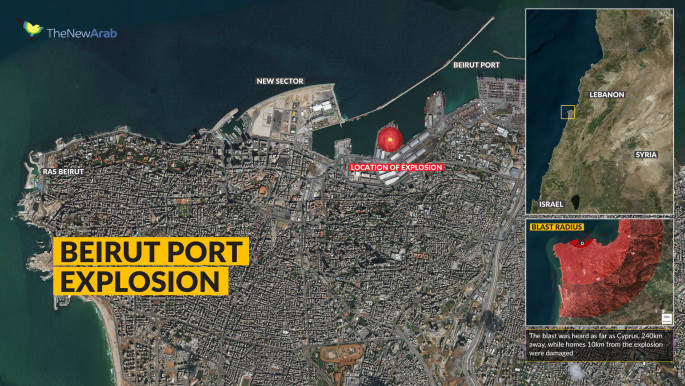Follow us on Facebook, Twitter and Instagram to stay connected
Lebanon's Hezbollah 'categorically denies' storing arms at blast site
Hezbollah chief Hassan Nasrallah Friday strongly denied claims that his powerful Shiite movement had stored arms at the site of a cataclysmic explosion that ripped through the Lebanese capital.
"I categorically deny" such rumours, Nasrallah said in a televised speech three days after a blast at Beirut's port killed more than 150 people.
"We have nothing in the port: not an arms depot, nor a missile depot nor missiles nor rifles nor bombs nor bullets nor ammonium nitrate."
Human Rights Watch (HRW) on Thursday joined several rights groups in calling for an independent investigation into the Beirut blast.The explosion in Beirut's port area killed at least 135 people and wounded 4,000 others, wreaking damage across the coastal city. The death toll is expected to climb higher as search and rescue teams continue efforts to locate dozens of missing people.
Officials said the blast was triggered by 2,750 tons of ammonium nitrate - an odorless crystalline substance commonly used as a fertiliser that has caused numerous industrial explosions around the world - which has been stored in a port warehouse for over six years.
Lebanon has declared a two week state of emergency in Beirut, as port officials who were responsible for storage and guarding facilities since 2014 were placed under house arrest.
Lebanese President Michel Aoun said the substance's storage was "unacceptable" and vowed the "harshest punishments" for those responsible. Many Lebanese hold the government accountable for the tragedy and see the political establishment as passing the buck.
Aoun today rejected calls for an international blast probe.
HRW called on the Lebanese government to make way for an independent investigation led by international experts to "determine the causes and responsibility for the explosion and recommend measures to ensure it cannot happen again".
|
The probe should identify the reasons behind the cause of the explosion, the long-term storage of ammonium nitrate in Beirut's port, as well as the officials who knew about the chemical's placement and failed to act, HRW said.
As Lebanon prepares to investigate the exact cause of the deadly blast, concerns have been raised about the government's ability to produce an accurate or balanced report on the incident.
A special investigation committee formed by the government on Tuesday is headed by Lebanon's justice minister, the prime minister and several security chiefs.
Officials have deflected any responsibility, pointing fingers at various government agencies for failing to deal with the years-old storage of the highly combustible material.
In its statement, HRW expressed "serious concerns" about Lebanese officials' ability to conduct a "credible and transparent" probe due to a record of political interference in the judiciary.
"Given the Lebanese authorities’ repeated failure to investigate serious government failings and the public’s distrust of government institutions, an independent investigation with international experts is the best guarantee that victims of the explosion will get the justice they deserve," said Aya Majzoub, HRW Lebanon researcher.
 |





 Follow the Middle East's top stories in English at The New Arab on Google News
Follow the Middle East's top stories in English at The New Arab on Google News
![Israeli forces ordered bombed Gaza's Jabalia, ordering residents to leave [Getty]](/sites/default/files/styles/image_330x185/public/2176418030.jpeg?h=a5f2f23a&itok=_YGZaP1z)

